Man of Steel Is #NotMySuperman
I want to preface this piece by saying that my dislike of Man of Steel comes from a place of love, not hate. I consider myself a huge Superman and DC Comics fan, and I don’t know anyone who wanted this movie, and the DCEU, to succeed more badly than I did.
Man of Steel isn’t a film that doesn’t know what it wants to be. It actually does, it’s just incredibly bad at it.
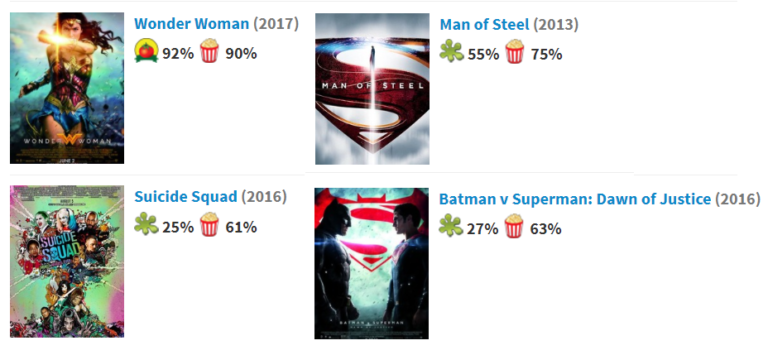
Solely from a numbers perspective, Man of Steel is the 2nd best film in the DC Extended Universe. A 55/100 on Metacritic and a 55% on the Tomatometer places it as a solidly middle-of-the-road flick. By those metrics, a worse reception than any Marvel Cinematic Universe entry, but not by much. But it was a polarizing film that had significant problems (problems that metastasized three years later in Batman V Superman), and I want to explore what went wrong, and where.
First Things First: These Flashbacks Are Garbage
This is a mostly negative article, so I want to say that I think Man of Steel does do some things right. Henry Cavill does well with the fairly limited material he’s given, and his general demeanor and charm, even when he hardly smiles, are great (he’s somehow a better Superman off-camera, though). Amy Adams is never a bad addition to a film. Michael Shannon plays to his strengths as the apoplectic, spit-flecking, raging General Zod. Kevin Costner sells his role hard. There’s a definite sense of wonder in certain shots. The music is almost comparable to the original John Williams score. Krypton is very visually engaging, and the fight scenes have a kinetic speed and power that other superhero films don’t (Superman is far stronger than anyone on the MCU Avengers, and it shows). And the film sporadically has individual scenes with moments of poignancy and emotional resonance.
It’s just that in the big picture, none of it comes together in a meaningful way. And it’s awful because it feels like they were on the right track. Man of Steel feels like getting a 59.96 in a particularly hard English class, and the professor refuses to round you up to a passing grade.
It’s painful because the general structure of Man of Steel makes sense for a Superman origin story film. One of the core conceits of the character is that growing up in Smallville as Clark, son of Jonathan and Martha, is what makes Superman so morally good. The idea of using LOST-like flashbacks to explain the formative years of Clark Kent, interweaving the past and the present would have worked well. Jonathan, his human father, believes that humanity would reject him and that they aren’t ready. On the other hand, Jor-El believed that Kal would and should lead humanity into a more prosperous future. Ultimately rejecting both and choosing to become Superman in his own way, the Superman we all know and love, would have been an actual character arc for Clark.
I say “an actual character arc” because Clark in Man of Steel doesn’t have a character arc. Not really. Repeatedly face with very similar problems throughout the film, and consistently makes the same decision throughout the movie. Jonathan says in flashbacks that Clark can’t reveal his powers to the world, even if he wants to do good. This is fine and all, except that our first scene with non-baby-Clark in the movie has him revealing himself and his superpowers to other people to save them. This is not a joke or hyperbole. Man of Steel opens with an 20 minute introduction spent on Krypton covering its demise, then we jump to adult Clark on a fishing boat. The first thing he does is rescue a bunch of oil rig workers from certain death.
So none of his meandering emotional turmoil, the flashbacks to his child and teenage years, has any underlying dramatic tension. Because we already know his choice. He’s chosen to prioritize saving people over staying hidden, even before he becomes Superman. Also, Lois Lane’s investigating shows that Clark has been doing this “helping people in secret all along” thing his entire adult life, so again. Same person. Same choices. Not really any progression or change. And I would say that character growth is what makes us attached to a character and empathize with them.
And to be clear, yes, it is obvious that Clark is going to become Superman in this movie. Unless the DCEU thus far has been some massive elaborate prank pulled by Zack Snyder and these movies take place on Earth-3 and we’re actually setting up for the Crime Syndicate of America, Clark is going to be Superman (honestly, after BvS I wouldn’t have ruled out the possibility). But if one of the main conceits of the movie is going to be Clark struggling with the choice between doing good and staying hidden, then maybe don’t reveal what he actually ends up doing in the first relevant scene he’s in? This is like giving the answer before you even get the question out.

Now is a good time to go into how terrible the flashbacks are in serving Clark’s character arc. After Krypton, the movie transitions into the LOST format of interwoven flashbacks until the final act. The first flashback features an elementary school Clark suddenly being hit with his x-ray vision and super hearing powers coming to maturation, so he freaks out and runs into a closet, and his mom comes and calms him down by telling him to “make [the world] smaller.” This piece of advice, other than being really general, doesn’t ever come up again…except when Zod’s breathing apparatus breaks and he suffers from the same symptoms Clark does. That’s it. It doesn’t matter.

Then, adult Clark steals some dude’s clothes, sees a bus, which triggers another flashback. So nothing happened between this flashback and the last one. No context informing us about the importance of the upcoming flashback, no framing…nothing. Here the school bus Clark and his classmates are on crashes on a bridge and falls into a lake. Clark uses his strength to save the bus and a fellow classmate, Pete Ross (a supporting character from the comics). Then Jonathan gives Clark the speech about making the hard choice between using his powers and keeping them secret. Then he reveals to Clark the pod he arrived in. Of course we already saw Clark make his choice regarding this issue, so again the dramatic tension of the moment is nonexistent.
In the next scene, adult Clark is working at a bar when he tries to protect a waitress from a rowdy customer who is harassing her. He antagonizes Clark, dumping a pitcher of beer on him and throwing a can at him as Clark does nothing but leave.
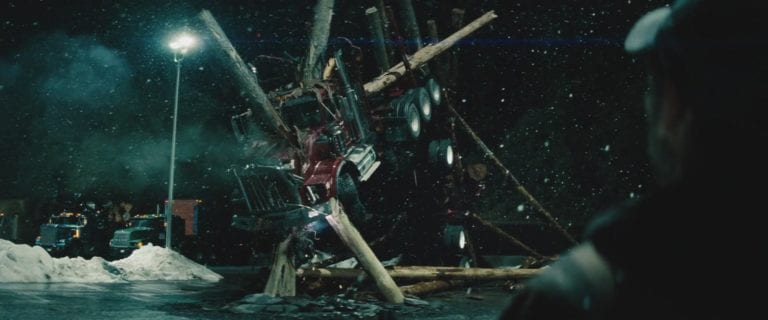
…except it turns out that Clark destroyed his truck. Which is extremely petty and honestly outright malicious, and very un-Superman-like. None of this makes any sense. None of it relates to the previous flashback, nor does it relate to an upcoming flashback. Maybe it represents how Clark is always “holding back,” except he doesn’t hold back. Because he messes up the guy’s truck. The actual point of this scene is that some soldiers in the bar mention they found “something strange” somewhere.
This “something strange” ends up being the Kryptonian ship where we meet hologram Jor-El and get all the yummy exposition.
The thing is, there actually is a flashback that would be relevant here– it’s a scene where Clark is being bullied, and he’s angry but clearly holding back because he doesn’t want to hurt anyone. This flashback being paired with the scene at the bar would at least make some sense (except not really, because adult Clark does retaliate by using his powers), but it doesn’t come for another 25 minutes. Also, there’s another flashback that actually precedes this bullying one anyway, so it’s even more of a moot point.

Anyway, adult Clark follows up on the lead from the bar, ends up in the Kryptonian scout ship, gets the whole exposition dump on why Krypton blew up, Jor-El’s dream for him, Clark dons the suit, flies, smiles. This is probably the best scene in the movie, at least from a character standpoint. It still feels kind of unearned because we just saw Clark total a guy’s truck because he was a rowdy asshole, but I’ll take what I can get.
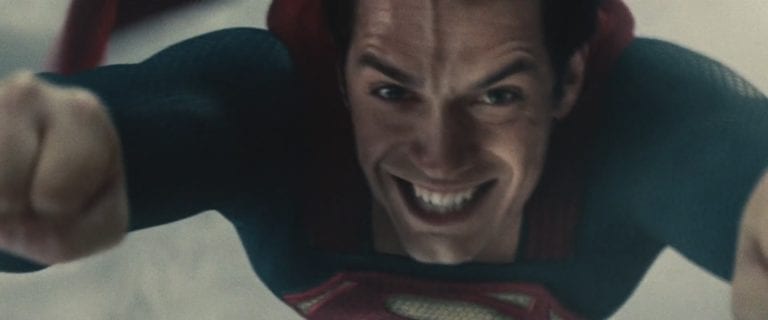
Lois Lane investigates Clark and finds out that he’s been secretly helping people this entire time. They meet up and finally talk. Here we get the infamous tornado flashback, where Jonathan doesn’t let Clark save him from his completely preventable death. Putting subjective interpretations of this scene aside, the actual consequence of this scene appears to be that Clark becomes a wandering traveler. He’s following through on his father’s advice from this scene:
“Finding out who you really are” apparently means becoming a hitchhiker who goes around saving people, just on the low. This despite the fact that he talks quite a bit about not being sure if he should save people. We know from the school bus scene that Clark isn’t opposed to using his powers in front of people to save lives, so it seems like the tornado actually just strengthened Clark’s resolve to not follow his father’s advice? Honestly, the problem is that the emotional through line of this scene isn’t very clear. Man of Steel should be communicating this clearly to the audience, but it simply isn’t.
I feel like it’s clear that the filmmakers want to say something. I see the skeleton of something here, but it’s all out of order and half the scenes don’t matter. In trying to avoid doing a standard origin story (because people hate those, right?), they tried to condense everything into these 4 flashbacks with these strange conversations on ethics and the right things to do. And none of it hits home on an emotional, character level. At all. And worse, the themes in the flashbacks aren’t integral to the main conflict, so truly nothing feels like it matters. Everything just feels like lip service. They’re using the iconography of Superman in lieu of actually crafting a story that integrates its themes into its characters.
So What Are the Themes Anyway?
Man of Steel is actually very heavy on theme for a comic book movie. It’s Superman, so this isn’t exactly surprising. There are two main themes Clark wrestles with. The first is “will humanity accept me” or “is humanity ready for Superman.”
Lara breaches this topic when they’re loading Kal into his escape pod. But the primary mouthpiece for this theme is Jonathan, who throughout the movie insists that the world isn’t ready for Clark. To the point where he can’t outright refute that Clark should have let a bus full of drowning schoolchildren die.
After Zod threatens the entire population of Earth, Clark himself shows he has similar doubts in this conversation. And apparently that’s enough to motivate Clark to reveal himself to the “humanity.” I put that in quotation marks, because no matter what Christopher Nolan or Zack Snyder might think, the American military is actually not an effective proxy for “humanity.” Adding Lois barely helps.
And the thing is that after this point, whether humanity will accept Superman or not becomes essentially a non-factor. Yes, after the conflict between Clark, Zod and his soldiers, and the American military, the military does consider him an ally. But again, the military =/= the world at large. Because the valuations a military force will place on something versus how a normal person will value those things is completely different. And Superman does reveal himself to the world at large, but “humanity” barely gets a chance to really react because they’re mostly trying to outrun the massive destruction caused by the World Engine.
So we’ll move on from this aborted them to the next one, which has to do with “the ability to choose your own destiny,” or pre-determinism. This theme is tied to the failures of Krypton, and the character of Zod. Basically, Krypton established population control by determining each newborn Kryptonian’s role via artificial births. Kal is actually the first natural birth on Krypton in centuries. This is important because after the population control was enacted, Kryptonians were born from these tree-like things, in a place called the “Genesis Chamber,” and had their roles predetermined by birth.
Anyway, the key point here is that Clark’s destiny isn’t pre-set, he has the ability to forge his own path. Somewhat embedded into this plot point is the idea that Clark cannot solely rely on Jor-El’s teachings or perspective. That’s because Jor-El himself is a predetermined, flawed creation of Krypton.
This idea that Clark has to reject both the teachings of his human and alien parents to forge his own perspective and path is one that makes sense. And in the end it’s… kind of what Clark does. He’s basically been ignoring his human father’s advice as an adult anyway, so the rejection has basically already happened, and he was “accepted” by the military. As for his alien father’s advice, well… two hours into the film, a certain exchange happens. Single-handedly destroying Krypton’s future seems like a pretty big rejection of their values.
One final point on this theme: Zod’s final speech to Clark actually has an additional layer of poignancy if you remember that Zod is actually genetically predispositioned to do everything he can to protect Krypton. He has no choice in the matter.
I actually felt some sympathy for Zod in this moment, except it was too little, too late. Any amount of catharsis and goodwill that Zod earns here is pointless anyway though, because instead of being explored in any meaningful way, he just gets angrier and contains smashing things…which has been his modus operandi the whole movie anyway. And it’s not like Clark and Zod’s conflict ends with them coming to some sort of understanding, or a dialogue…well, we all know how it ends.
Oh, and Superman still hasn’t revealed himself to humanity yet, and won’t. Reaction shots of citizens looking shocked and afraid is not sufficient to address the theme of “will humanity accept me or not.” There’s just…nothing to this theme at all. We won’t get to this theme until Batman V Superman.
So, to recap. 1. Will humanity accept Superman? Basically unanswered, unless you count the military accepting Superman as an asset as an answer to this question (I don’t). 2. The ability to choose your own destiny (represented as the sins of Krypton). This doesn’t get any resolution either. Clark just says Krypton had its chance and destroys the Genesis Chamber. If you consider that to be “rejecting his Kryptonian father,” then I suppose you could say Clark is forging his own path by rejecting both his human and Kryptonian father’s ideas… except Jor-El is also all about Clark inspiring and helping humanity, which is what he’s doing, so it doesn’t really work out.
The incorporation of themes into this movie is garbage. I don’t have a clever segue, so let’s just move on to the destruction of Metropolis/Superman killing Zod stuff.
DESTRUCTIOOOOOOOOOOOOOOOOON
I don’t think the choice to have Superman kill Zod is an inherently terrible choice. Except the problem is that it really goes against the established character of Superman in this movie. I’m fairly certain that Superman was actually trying very hard to kill Zod earlier.
Even if you don’t think that Superman is trying to outright murder Zod here, Clark has shown no strong belief that killing isn’t okay, or that human life is sacred and has to be protected at all costs. Maybe Zack Snyder is just really bad at realizing the optics of these sorts of things, but Clark throws Zod through a water tank (causing a huge explosion). Then a gas station (causing a huge explosion). He dodges a bullet by jumping into a house. Zod kicks an oil tanker at him that he nonchalantly dodges (causing a huge explosion). Finally he uses buildings as sources of friction to ineffectively hurt Zod (causing huge amounts of damage) and genuinely seems to just not care an iota about minimizing collateral damage at all.
Yes, he saves the bus full of kids, and he surrenders himself to Zod. He’s not a psychopath, but his behavior seems wildly inconsistent at best, and caustic and immature at worst. The “general” Superman cares about protecting and saving lives. In Man of Steel, Superman barely pays lip service to the idea, and his actions are indicative of a person that does not care about potential damages at all.
In fact, of the two World Engines he deliberately goes after the one that’s in the South Indian Ocean. Where there are no people. I understand that both World Engines need to be shut down. But maybe Superman should go to the one in the populated city? Not the one in the middle of the ocean? No offense to Aquaman but literally millions of human lives were at stake.
Man of Steel is desperately relying on the Superman character we all know and love to make this final choice of “to kill or not to kill” hit home. It has to because in the context of Man of Steel, the agony of this final choice is totally unearned. Every fight scene makes Superman come off as someone who just does not actually prioritize saving lives or protecting others at all. That’s probably the most antithetical popular Superman take since…okay, well, since Injustice. But Injustice is trying to be Elseworlds, whereas Man of Steel was trying to be the jumping off point for an entire film franchise. Not a good look. In fact it’s a terrible idea all around. It wasn’t surprising to me that BvS suffered from the same problems.
Final Thoughts
In conclusion, this movie sucked on every level and I hated it. I didn’t like it as a casual viewer. I dislike it even more as a DC fan. And as a Superman fan I hate it.
And Batman vs. Superman did not alleviate any of these issues. It actually, somehow, made them worse. Two character assassinations for the price of one.
Huge video game, comic book, and anime fan. Spends way too much time watching things he doesn’t like. Hates Zack Snyder. Mains Falco.








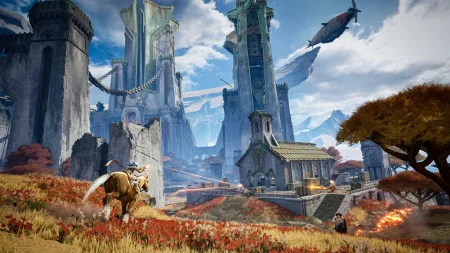
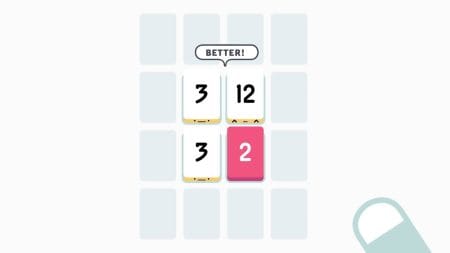
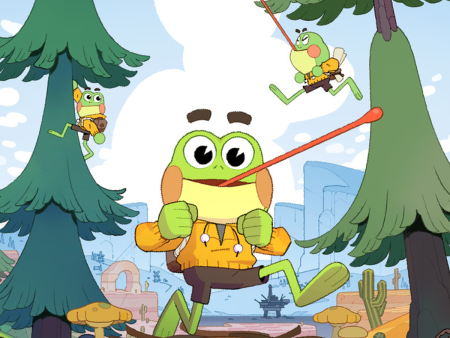
2 Comments
Excellent piece of writing here, really enjoyed it and thanks. I also hate this movie and incarnation of Superman, the character is all wrong. It’s the most static portrayal of a character I can remember, like granite and without any of this question about morality and the value of human lives there’s nothing interesting or compelling about him at all. Superman as an OP mall cop, I don’t believe this Man of Steel would have the slightest concern for anything more than we concern ourselves with the politics of an ant colony.
> I dislike Man of Steel but from a place of love, I’m a Superman fan…
Being a fan doesn’t make your critique gospel. It just means you expected a safe, familiar Superman and Snyder deliberately gave you something else. That’s not “bad,” that’s a choice — one that aged better than people thought.
> The flashbacks are garbage, Clark has no character arc.
The flashbacks are the arc. The school panic attack isn’t filler, it’s sensory overload — a kid drowning in input he can’t control. His mum teaching him to “make the world smaller” is exactly what grounds him later against Zod. The school bus, bullying, Jonathan’s speeches — all of it shows a boy wrestling with when and how to act, not if. That’s tension.
> He saves people from the oil rig right away, so there’s no struggle.
Helping in the shadows is not the same as being Superman in the open. Anyone can act anonymously. The leap is doing it in the light, when you know the world might reject you. That’s the arc you say doesn’t exist.
> The bar scene shows Clark is petty and un-Superman-like.
No, it shows restraint. He doesn’t hurt the guy. He vents on a truck instead — immature, sure, but human. That’s the point: Clark isn’t a flawless demigod yet, he’s still learning what it means to carry that kind of power without lashing out.
> Flashbacks don’t connect, they’re just lip service.
They connect thematically. Every one of them is about suppression versus instinct — bullied at school, told to hide by his dad, letting Jonathan die to keep the secret. All strands of the same thread: he can’t stop helping, even if it costs him. That’s what makes him real.
> Themes don’t pay off: “Will humanity accept me?” and “choice of destiny.”
They pay off, just not in the spoon-fed way you want. Humanity doesn’t accept him overnight — they fear him, which is exactly what would happen in real life. And the point isn’t will they love me, it’s will I help them anyway. As for destiny, Clark literally destroys the Genesis Chamber, rejecting both Krypton’s determinism and Jonathan’s fear. That is payoff.
> The Zod fight shows he doesn’t care about collateral damage.
That’s the laziest critique. He’s barely surviving against someone with equal powers who brings the fight to populated areas. You don’t get clean comic-book battlefields in real life. The devastation is the cost of realism. And the neck snap? That’s not Snyder forgetting Superman — it’s the crucible that defines him. Pain before principle.
> Final thoughts: this movie sucked on every level.
That’s just fanboy salt. What you call “sucked” is Snyder refusing to spoon-feed you camp and comfort food. You want that, you’ve got the 2025 Superman with bright colours and a flying dog. Man of Steel is harder: a story about an overwhelmed outsider who feels more autistic than alien, choosing to protect a world that fears him. That’s not “wrong Superman” — that’s the Superman we actually need now.